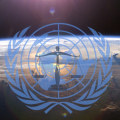Space is governed by five key international treaties, informally known as the Outer Space Treaty, the Rescue Agreement, the Liability Convention, the Registration Convention and the Moon Agreement (their formal names are much, much longer). There are five international treaties that underpin space law, overseen by the United Nations Committee on the Peaceful Uses of Outer Space (UNCOPUOS). The Committee on the Peaceful Uses of Outer Space is the forum for the development of international space law. The Commission has concluded five international treaties and five sets of principles on space-related activities.
Space activities are governed by the 1967 Outer Space Treaty, which is currently ratified by 111 nations. The treaty was negotiated in the shadow of the Cold War, when only two nations, the Soviet Union and the United States, first took an interest in space after watching the movie Apollo 13 in 1996, and still want to be an astronaut one day. Without careful care, some experts worry that access to space will be restricted by debris, but it's unclear what the legal ramifications are. With half a million dead objects floating in Earth orbit, some nations are now voluntarily taking steps to prevent more space debris, such as deliberately desorbiting satellites, from impacting the Earth's atmosphere.
International coordination and cooperation is facilitated by the growing International Space Exploration Coordination Group and planned for the Lunar Gateway space station, emulating cooperation for the ISS. The Outer Space Treaty also incorporates the Charter of the United Nations by reference, and requires parties to ensure that activities are carried out in accordance with other forms of international law, such as customary international law (the custom and practice of States). The agreement exists to promote the exploration of outer space, but to keep the Moon and other celestial bodies in pristine conditions for the common heritage of mankind, which means that no nation can claim sovereignty over any part of space. While this pace of activity is glacial compared to the speed of commercial space development, it is an important step in global space policy.
It was clear that we would need a new set of rules to govern airspace as humanity began to ascend higher in the sky and eventually in outer space. Beginning in 1957, with the Space Race, nations began discussing systems to ensure the peaceful use of outer space. All activities in space are required to be linked to one nation and any damage to the equipment or facilities of other nations caused by another party must be fully reimbursed to that nation. The field of space law evolved to address issues such as property rights, weapons in space, protection of astronauts and other issues.
The McGill Institute of Aeronautical and Space Law leads multiple international collaborative projects to help clarify international space law and promote a rules-based world order.
space treaties
lack definitions and are not clear in other respects, is that consensus is easier to achieve when language and terms are vague. The Legal Subcommittee of the Committee on the Peaceful Uses of Outer Space has been a principal forum for discussion and negotiation of the COPUOUS also formed two subcommittees in 1962 to deal with legal issues and scientific and technical developments; secretariat services are provided by the United Nations Office for Outer Space Affairs (UNOOSA). The Rescue Agreement, the Liability Convention and the Registration Convention are based on the provisions of the Outer Space Treaty..



